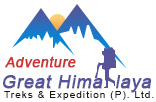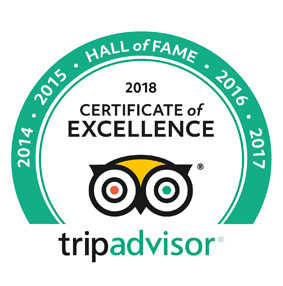Start From
$5600 USD per person
Group Discount Price
Number of Travellers
Overview
The Western Great Himalayan Trek is undoubtedly one of Nepal’s unique but challenging adventures. This trek takes you through the remote and off-beaten locations in the mid-western part of Nepal, including the regions of Annapurna and Manaslu Circuits. This journey combines three famous treks; Manaslu Circuit with Tsum Valley, Annapurna Circuit via Nar Phu Valley, and Upper Mustang.
This long trek combines adventures from all aspects, from the mystic Himalayas in the north to the diverse landscapes and cultural insights. Besides, the religious insights that you experience from the temples and monasteries offer you great knowledge of Hinduism and Buddhism and their practice in Nepal.
Is This Trek for You?
It depends on several factors, such as your physical fitness, experience in trekking, and ability to acclimatize to high altitudes while considering if you can do the Western Great Himalayan Treks. This package is physically demanding and exhausting, which requires strong physical fitness, mental state, and preparation with gear and safety.
On top of that, trekkers must have prior trekking experiences on high-altitude destinations to adapt to the destinations like Kang La Pass and Thorong La Pass. These regions feature thin air, and low oxygen, which pushes you to suffer from altitude sickness. So acclimatization is mandatory before embarking on high altitudes. Similarly, anyone with pre-existing medical conditions must have prescribed medications and consult with doctors before taking this journey.
Ultimately, anyone with prior trekking experience, exposure to high altitude, and physical, mental, and gear preparation can take on this trek. In the meantime, they must be mindful of the natural calamities, injury, and other related issues that might occur on the journey.
Highlights of the Western Great Himalayan Treks
- Explore Manaslu Region and Tsum Valley
- Reach Lo-Manthang, the capital city of ancient Lo Kingdom
- Explore Buddhist Monasteries like Mu Gompa, Jampa Gompa (Jampa Lhakhang), Thubchen Gompa, Chodey Gompa, and Choprang Gompa
- Reach Kang La Pass, Larkya La Pass, Thorong La Pass, and other high altitude locations
- Explore Jomsom and Kagbeni
- Visit Muktinath and explore 108 sprouts and eternal flame
- View the stunning Annapurna Mountain Ranges, including peaks like Annapurna, Gangapurna, Nilgiri, Dhaulagiri, Machhapuchhre, and others.
- Sightseeing activities in Pokhara and Kathmandu Cities
Best Time For Western Great Himalayan Trek
The Western Great Himalayan Trek offers one of the most breathtaking and adventurous hikes through the Annapurna, Tsum Valley, and Upper Mustang regions. Autumn and Spring are considered the best time to go for the trek. So why are they the most favorable seasons for undertaking this trek? Know them below!
Autumn (September to November):
Autumn Season is one of the best times for the Western Himalayan Treks. First, the weather condition from September to November is pleasant. The environment is usually clean and dry, with warm days and cool nights, allowing clear views of the stunning mountain ranges and landscapes.
Besides, the probability of encountering natural hazards like landslides, floods, and avalanches is minimal as Autumn falls between monsoon and the winter. This also means that you don’t have to deal with the closures of the destinations like Kang La Pass and Thorong La Pass.
Spring (March to May)
The mild and pleasant weather condition makes Spring the peak time for going to the Western Great Himalayan Treks. The clear skies and moderate temperatures will allow you to enjoy the hike more beautifully, providing a transparent view of the Himalayas, forest, and surroundings.
One of the most exciting components of the Spring season is its colorful and vibrant nature. The flowers go in full bloom, and the green leaves of the forest make the scenery breathtaking. The environment is usually dry, allowing you to navigate the landscapes easily.
In conclusion, Autumn and Spring are the best environments to trek in the Western Great Himalayan region. But the choice depends on the trekkers’ personal preferences and trekking goals while choosing the best time for travel.
Off-Season Trek | Should I Do It?
Off-season treks are generally operated during monsoon and winter. Trekking in Nepal is challenging during these times as they come with different issues and environmental conditions. First, the weather condition is unfavorable for long travel; for example, monsoon features heavy rainfall, while snowfall and avalanches can be a problem during the winter. So you must be fully prepared with everything you have, from physical and mental needs to gear and professional guides.
Trip Itinerary
Arrive in Kathmandu , Nepal
Free Day and Prepare Permit
Drive to Machha Khola , 890m. 8 hour
Trek from Machha Khola to Jagat , 1350, 6-7 Hours
Trek from Jagat to Lokpa . 1874m, 4-5 Hours
Trek to Lhokpa from Chumling - 2320m, 4-5 Hours
Trek From Chumling To Chekampar -3031m, 6 houre
Trek From Chekampar To Nile-3361m, 6 hour
Trek To Mu Gompa - 3700m, 4-5 Hours
Trek From Mu Gompa To Chhokangparo -3501m, 6 hour
Chhokangparo To Chumling-2320m, 7 hour
Trek From Chumling To Deng - 1860m, 6-7 Hours
Trek From Deng To Namrung -2660m, 6-7 Hours
Trek From Namrung To Sama Gaon -3525m, 8-9 Hours
Explore day and Visit Birendra lake
Trekking to Samdo -3690m, 6 hour
.
Acclimation and Climb Samdo Ri
Trek To Dharmasala -4460m, 4 hour
Trek to Larkey La pass (5214m) Bhimthang -3720, 8 hour
Trek From Bhimtang To Tilje - 1900m, 4-5 Hours
Trek to Dharapani, 1,320 m , 5 – 6 hrs.
Trek to Koto - 2600m, 6 hrs
Trek To Meta -3638m, 5 hour
Trek To Phu Village, 4250m, 7 hour
Acclimation Day
Trek to Nar Phedi, 3490m, 6 hour
Trek to Nar Village - 4150m, 7 hour
Trek to Kang La Pass - Nawal (5320) 7 hour
Trek to Manang-5 hour , 3351 Meters
Trek to Yak Kharkara, 5 Hour , 4110 Meters
Trek to Throng Phedi , 4600m, 5 hour
Trek to Muktinath Via throng la Pass( 5416m)
Trek to Kagbeni, 2810m, 4 hour
Trek to Chele- 6 hour , 3,050 Meters
Trek to Ghiling, 6 hour , 3540m
Trek to Charang, 3560m, 6 hour
Trek to Lo manthang-3840m, 4 hour
We will have enough time to rest and acclimatize on the thirty-fourth day. Since the journey is long, we will be physically and mentally exhausted, so having proper rest, sleep, diet, and nutrition is crucial.
Trekkers are recommended to eat healthy and nutritious food, stay hydrated, and take safety measures against altitude sickness. This day, we also can hike to the different areas around Lo-Manthang, which was the capital city of Kingdom Lo in ancient times. We can still see the Royal Palace, whitewashed mud-brick walls, and several Gompas like Jampa Gompa (Jampa Lhakhang), Thubchen Gompa, Chodey Gompa, and Choprang Gompa.
Accimatioa and Local Hike
Trek to Dhakmar 3,820 m – 06 hrs.
Trek to Ghiling 3,806 m – 06 hrs.
Trek to Tsusang 2,980 m – 06 hrs.
Trek to Kagbeni 2,830 m – 05 hrs.
Trek to Jomsom 2,715 m – 04 hrs.
Jomsom Morning Flight to Pokhara.
Drive / Fly back to Kathmandu.
Free Day
Departure from Nepal
Cost Include / Exclude
What’s include
- Airport/ Hotel/ Airport Transportation.
- 3 Meals a day during the trek ( Breakfast, Lunch, dinner)
- Lodge/ Tea house Accommodation during the trek.
- A government licensed English speaking Guide during the trek.
- Trekking porter ( One porter between two members) the limit weight is 16 Kg)
- All Kinds of Permit
- All Ground transport as per itinerary
- Flight ticket from jomsom / Pokhara/ Kathmandu
- Ground Transportation by Bus / Sharing local Jeep
- Trekking Equipment- Down Jacket and sleeping bag (which needs to be returned after the trek.)
- All our government taxes.
- Tourist service charge, vat.
- Official expense.
What’s excluded
- Personal travel insurance
- All bar bills and Drinks
- Tips for Guide, Porter
Enquiry Form
Note:Please ensure names must be exactly the same as your passport (for ticketing/security purposes). You could incur extra costs or even miss your flight if the names are not correct.
Start From
$5600 USD per person
Group Discount Price
Number of Travellers
Customer's Reviews
Why booking with us ?
- Fully Locally Owned Company
- Quality Of Service and Competitive price
- Highly Professional Staff
- Flexible and customization trip itinerary
- 100% Customer satisfaction
Need help?
Nepal: 00977-9841273869 whatsapp: 00977-984127386924 hour customer service


